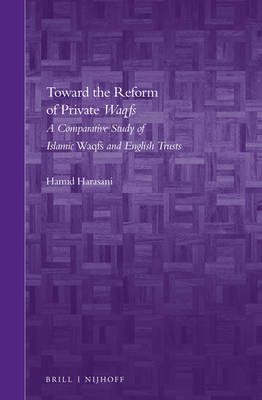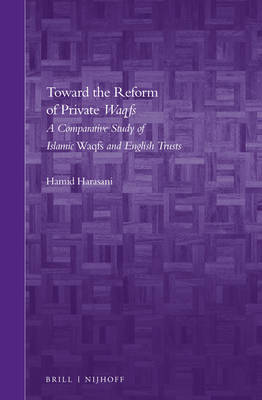
- Afhalen na 1 uur in een winkel met voorraad
- Gratis thuislevering in België vanaf € 30
- Ruim aanbod met 7 miljoen producten
- Afhalen na 1 uur in een winkel met voorraad
- Gratis thuislevering in België vanaf € 30
- Ruim aanbod met 7 miljoen producten
Zoeken
Toward the Reform of Private Waqfs
A Comparative Study of Islamic Waqfs and English Trusts
Hamid Harasani
€ 216,95
+ 433 punten
Omschrijving
Using a combination of the comparative legal method and hermeneutics, this book reconciles Islamic law with English trust's law in these two main areas. It does not find it necessary for one legal system to reign supreme over the other, as such solutions will be questioned by the internal subjects of the dominated legal system, undermining the efficacy of this study. Rather, reconciliation is a mutual step to congruence taken by both legal systems. In the area of perpetuities, the book finds that neither Islamic Waqfs must be perpetual, nor common law trusts must have a rule against perpetuities. Regarding ownership theories, the multiplicity of rendered theories in both legal systems presents more than one avenue of reconciliation. Overall, the study finds that private Waqfs and private trusts can be reconciled without undermining the internal hermeneutic standpoints of both legal systems.
Specificaties
Betrokkenen
- Auteur(s):
- Uitgeverij:
Inhoud
- Aantal bladzijden:
- 276
- Taal:
- Engels
- Reeks:
- Reeksnummer:
- nr. 10
Eigenschappen
- Productcode (EAN):
- 9789004306974
- Verschijningsdatum:
- 15/10/2015
- Uitvoering:
- Hardcover
- Formaat:
- Genaaid
- Afmetingen:
- 160 mm x 236 mm
- Gewicht:
- 539 g

Alleen bij Standaard Boekhandel
+ 433 punten op je klantenkaart van Standaard Boekhandel
Beoordelingen
We publiceren alleen reviews die voldoen aan de voorwaarden voor reviews. Bekijk onze voorwaarden voor reviews.








